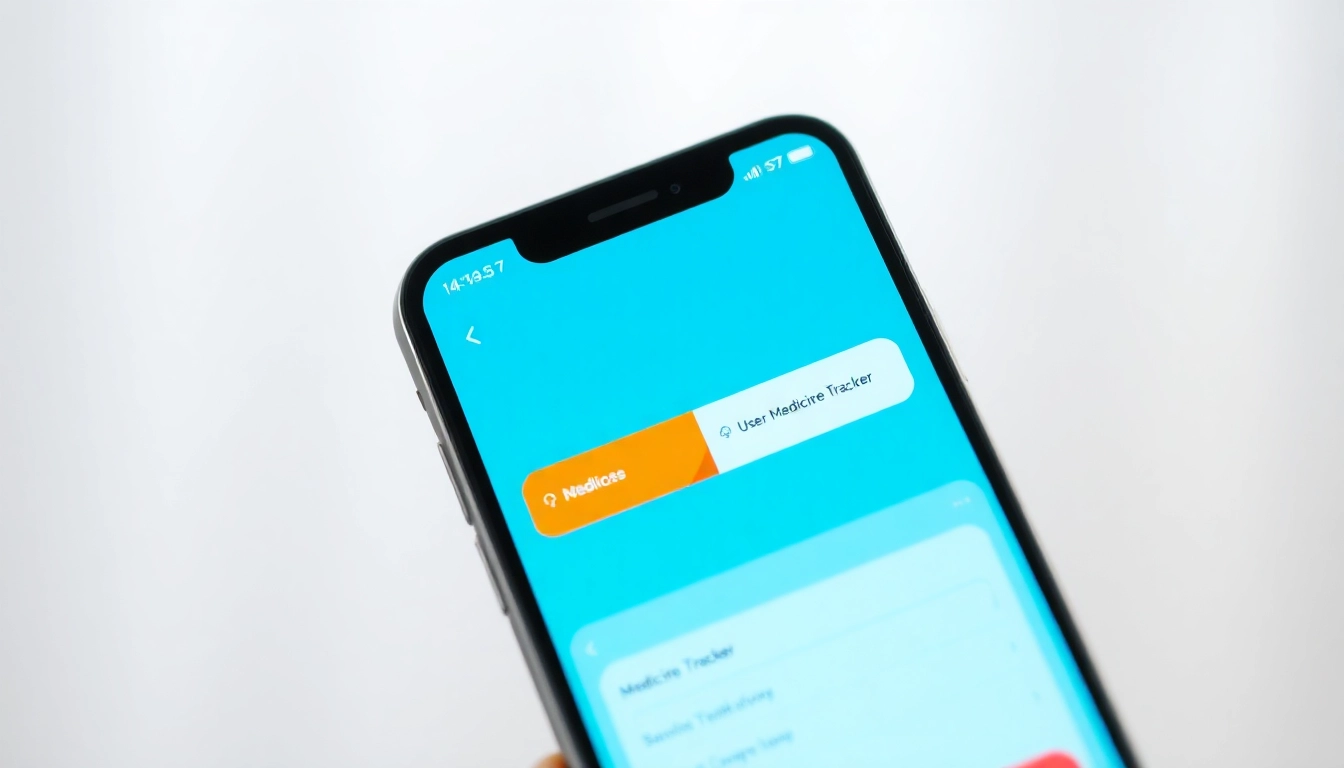
What is a Medicine Tracker?
Definition and Importance of Tracking Medications
A medicine tracker is a tool designed to help individuals manage their medication regimens effectively. It works by allowing users to log and monitor their medication schedules, ensuring that they take the correct medications at the right times. In today’s fast-paced world, with increasing instances of chronic diseases and complex treatment plans, the importance of tracking medications cannot be overstated. According to various studies, medication adherence can significantly impact health outcomes, reducing hospitalizations and healthcare costs. By employing a Medicine Tracker, individuals can achieve a higher adherence rate, enjoy better health management, and ultimately increase their quality of life.
How Medicine Trackers Work
Medicine trackers can take various forms—ranging from physical pill organizers to advanced smartphone applications. The underlying mechanics typically involve setting reminders for when to take specific medications based on individual prescriptions. Most apps offer features such as notifications, dosage reminders, and refill alerts. Furthermore, many trackers allow users to input details about their medications, including the name, dosage, and frequency of intake. This data can also be shared with healthcare providers, enabling better communication regarding a patient’s treatment plan.
Key Features to Look For in a Medicine Tracker
When choosing a medicine tracker, it is crucial to consider several key features that can enhance usability and functionality. Here are some of the essential aspects to look for:
- User-Friendly Interface: A clean, intuitive design makes it easier for all age groups to navigate the app or device.
- Customizable Reminders: The ability to set specific times and frequencies for reminders can enhance adherence among users.
- Medication Database: An extensive library of medications helps users quickly identify and log their prescriptions without complications.
- Interaction Checking: Some trackers can also evaluate potential drug interactions, which is invaluable for those on multiple medications.
- Reports and Analytics: Tracking adherence metrics and generating reports can assist users and healthcare professionals in assessing medication effectiveness over time.
Benefits of Using a Medicine Tracker
Improved Adherence to Medication Regimens
Adherence to medication is critical for achieving the desired health outcomes, particularly in chronic disease management. Studies indicate that medication adherence can improve by as much as 50% when utilizing a tracking system. With the scheduled reminders, users are less likely to skip doses, forget to take their medication, or take incorrect amounts. This enhanced adherence leads directly to better health management, fewer complications, and a significant reduction in emergency room visits.
Enhanced Communication with Healthcare Providers
Effective communication between patients and healthcare providers is essential for optimal treatment outcomes. A medicine tracker fosters this interaction by enabling users to share their medication history easily. Data from these trackers can provide valuable insights into medication adherence and effectiveness, allowing healthcare professionals to make more informed decisions regarding their patient’s treatment plans. Moreover, any side effects or interactions logged into the tracker can also be discussed during consultations, ensuring everyone is on the same page.
Personalized Health Management Strategies
Medicine trackers facilitate personalized health management strategies, helping users develop tailored approaches to their needs. For instance, if a user notices they frequently miss their evening dose due to specific activities, they can adjust the timing of their reminders or even change the timing of their medication in consultation with their healthcare provider. This level of customization encourages proactive management and enhances overall patient involvement in their health care journey.
Choosing the Right Medicine Tracker App
Comparing Top Options on the Market
With numerous medicine tracker apps available, selecting the right one can be daunting. Popular options like MyTherapy and Medisafe are at the forefront due to their robust features and high user ratings. Users should assess their specific needs—whether they need detailed analytics, interaction checking, or just simple reminders—to make well-informed decisions.
User Reviews and Ratings
User feedback is invaluable when choosing a medicine tracker app. Both Google Play and the Apple App Store provide platforms for users to share their experiences. Evaluating ratings and reading reviews can offer insights into the app’s usability, features, and any potential drawbacks. For example, Medisafe boasts an impressive rating of 4.5 stars on Google Play, indicating widespread positive reception, while also signaling the importance of continual updates and support from developers.
Cost Considerations and Free Alternatives
Understanding the cost of a medicine tracker is essential for budget-conscious users. While many apps offer free basic functionalities, others provide premium features for a fee. Users should weigh the benefits of paid features against their personal needs. Often, free alternatives provide sufficient functionality for those new to medicine tracking or who manage a less complex medication regime.
Best Practices for Using a Medicine Tracker
Setting Reminders and Alerts
For a medicine tracker to be effective, users must ensure reminders and alerts are set correctly. Most apps allow customizable settings, so users should take advantage of these features to create an optimal reminder schedule. For example, setting both time-based and event-based reminders—such as linking alerts to meal times—can enhance adherence. It can also be beneficial to schedule reminders at times most conducive to your lifestyle, whether that means early mornings or evenings.
Tracking Side Effects and Interactions
Monitoring side effects and potential drug interactions is crucial when managing multiple medications. Many medicine trackers include capabilities to log any adverse reactions, which should be discussed with healthcare providers promptly. Users who document their experiences can provide doctors with valuable insights that may influence medication adjustments or changes, ensuring a safer and more effective treatment plan.
Regularly Updating Your Medication Information
As prescriptions change or new medications are introduced, it is vital that users regularly update their medicine tracker. This practice not only ensures the accuracy of the information present but also enhances the tracker’s effectiveness as a communication tool with healthcare professionals. Setting a recurring reminder to review and update medication information can make this task manageable and straightforward.
Future Trends in Medicine Tracking Technology
The Role of Artificial Intelligence in Health Tracking
Artificial intelligence (AI) is set to revolutionize the way medicine tracking is conducted. AI can analyze patterns in medication adherence, predict potential lapses, and even customize health suggestions based on individual user behavior. As technology advances, it is likely that future medicine trackers will integrate AI to provide personalized alerts, medication tips, and optimized dosing schedules tailored to the user’s habits and health history.
Integrating Health Data Across Platforms
Future medicine trackers may also integrate with broader health management platforms, providing a more holistic view of a user’s health data. This integration could assist in synchronizing medication schedules with other health metrics such as exercise, diet, and sleep patterns, enabling users to receive comprehensive health advice and fostering a more proactive approach toward health management.
Staying Compliant with Privacy Regulations
As medicine tracking technology continues to evolve, so too must the approaches to data privacy and compliance. Users must have reassurances that their health information is secure and used ethically. Best practices may include implementing stringent data encryption, utilizing secure data storage solutions, and adhering to regulations such as HIPAA in the United States. Transparent privacy policies will foster trust and encourage more individuals to utilize digital medicine trackers.






